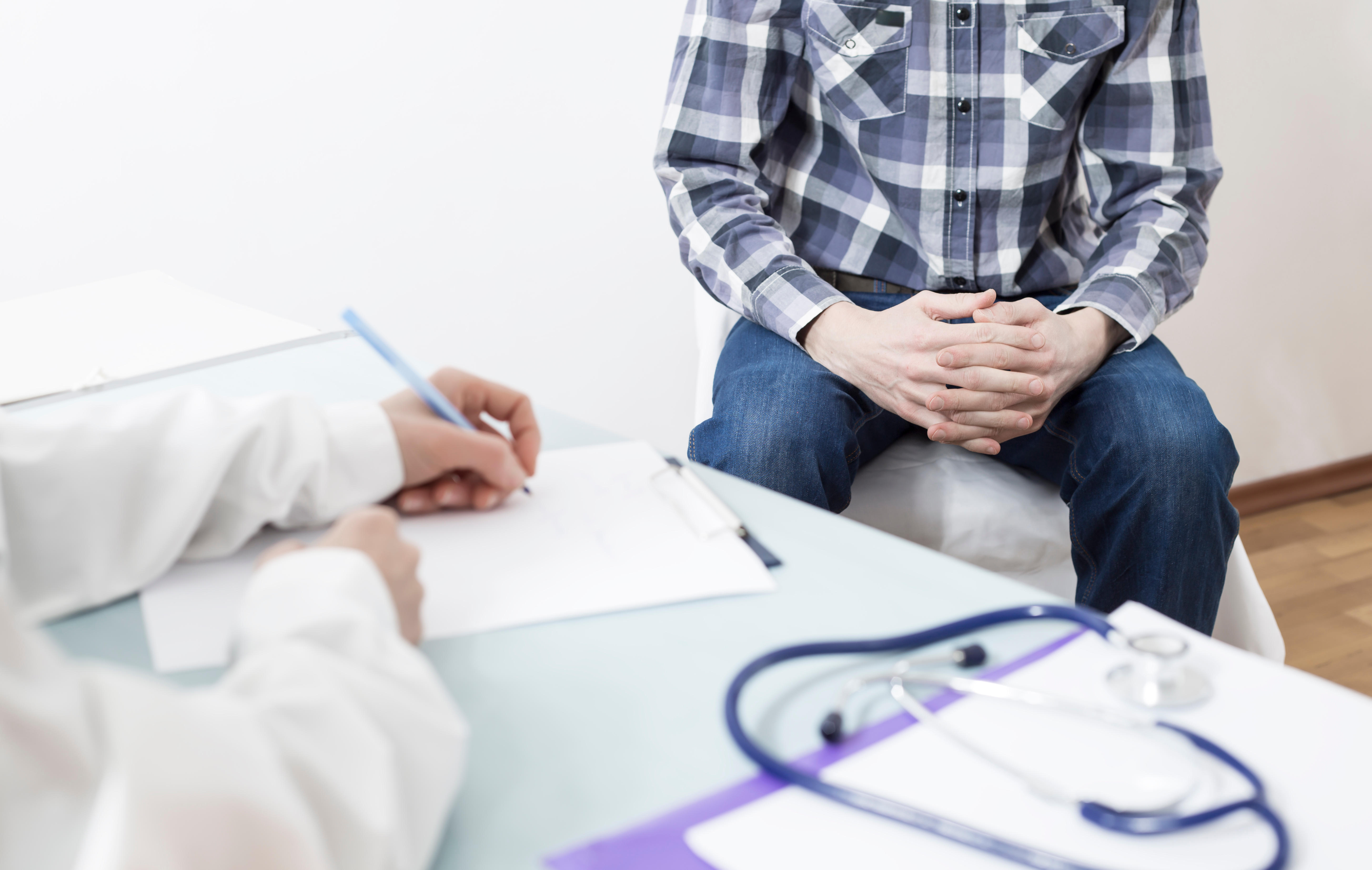Stephen Fry is urging people with potential symptoms of abdominal or urological cancer to get checked out by their doctors.
The actor and comedian, who was treated for prostate cancer in 2018, has joined the NHS Help Us, Help You campaign, supported by Public Health England.
The 64-year-old says: “A few years ago, I was pretty stunned to be given a diagnosis of prostate cancer. I was very lucky because mine was diagnosed early. Many of us can succumb to cancers but there are symptoms that can be reported by the patient.
“So please, make an appointment with your GP if you notice discomfort in the tummy area or diarrhoea for three weeks or blood in your pee even just once.”
He features in a short film for the campaign alongside This Morning’s Dr Hilary Jones and Dr Philippa Kaye, as well as members of the public sharing their experience of cancer diagnosis and recovery after treatment and early intervention.
Abdominal and urological cancers make up 44% of all cancer diagnoses in England and 41% of cancer deaths in the country, yet many people are unaware of the common warning signs. We spoke to Jo Stoddart, cancer specialist at Bupa, to find out more.
What are urological cancers?
“Urological cancers affect the urinary-tract system and the male reproductive organs,” says Stoddart. “Some of the most common types include renal cancer – which affects the kidneys – as well as bladder, prostate and testicular cancer.” Prostate is the most common in men- more than 47,500 men are diagnosed in the UK every year, according to Prostate Cancer UK.
And abdominal cancers?
“Abdominal cancers include the likes of stomach, liver and bowel cancer. Bowel cancer is one of the most common forms affecting all genders, though it is slightly more common amongst males,” says Stoddart.
Cancer Research estimates that there were around 42,000 cases of bowel cancer between 2015 and 2017, “making it the fourth most prevalent kind – compared to between 6,000 to 7,000 cases for stomach and liver cancers,” she says.
What are the common warning signs?
As abdominal and urological cancers affect the same areas of the body, there can be crossover in symptoms, explains Stoddart. Which is why it’s so important to see your doctor for a proper diagnosis.
“Common symptoms include regular abdominal discomfort, or problems starting or stopping urinating, or only being able to pass small amounts. Blood in the urine is another key symptom. In fact, this is the most common symptom of bladder cancer.
“Of course, these symptoms can be linked to less serious conditions too,” she says.
Diarrhoea lasting more than three weeks, unusual long-lasting bloating, blood in your poo, any change in bowel habits, feeling full very quickly while eating and unintentional weight loss, should all be checked out by a GP right away too.

What’s the treatment like?
It depends on the type of cancer and the stage it’s diagnosed, but in many cases chemotherapy and radiotherapy can be used to target cancerous cells.
“The difference between the two is that chemotherapy uses medicine to kill the cancer, while radiotherapy uses radiation,” explains Stoddart.
“For some forms of cancer, such as that in the bowel, it may also be necessary to carry out surgery, to remove the cancer. This can be done alongside chemo or radiotherapy.”
What if it’s embarrassing?
This campaign follows new research released by Kantar and commissioned by the NHS which found that more than half of the public would be put off going to see their doctor if they displayed such symptoms due to feeling embarrassed, and around a similar number said they wouldn’t go due to fear of wasting their GP’s time.
But the message is to always check to be on the safe side – even if you only have one symptom – and don’t delay.
“If you notice symptoms of cancer, or anything that doesn’t feel right, it’s best to speak to your doctor straight away. In most cases, it will be nothing serious but – if it is cancer – it’s likely you’ll have a better prognosis if it is caught early,” says Stoddart.
“There’s nothing to be embarrassed about, and it won’t be anything your doctor hasn’t seen before. The main thing is getting you either piece of mind, or the treatment you need.”
